Empowering Communities Through Sustainable Solutions!
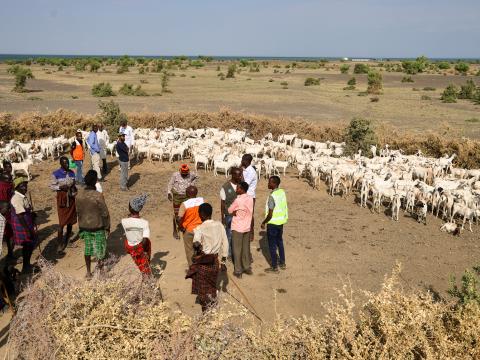
A serene morning paints the Moite community as the World Vision Kenya team arrives. The scattered manyattas quickly come alive with anticipation as residents, young and old, gather to greet their visitors. Traditional Turkana songs and dances fill the air as the community expresses their warm welcome. Our mission is clear: to provide sustainable livelihoods to families devastated by the impacts of climate change through restocking and introducing improved Galla goat breeds.
Over 5,000 people in the Moite community in Loiyangalani Ward require humanitarian assistance and alternative income sources. A disturbing consequence has been a surge in human trafficking, primarily exploiting young boys as cheap labour. This is partly owed to the fact that Marsabit has experienced five failed rain sessions, which has adversely affected most of the communities in the counties most of whom are predominantly pastoralists. Moite location is one of the hard-hit areas in Marsabit leading to severe drought and loss of livelihood. As Moite Sub-location Assistant Chief Joseph Ekar Lomojo emphasizes, "Climate change-induced drought has crippled our community, leading to a rise in human trafficking. Teenage boys are forced into long hours of low-wage labour, while other vulnerable groups face increased risks of exploitation and abuse."
According to the ND Gain 2018/2020 report, Kenya was ranked 31st as the most susceptible country and the 37th least prepared country to address climate change effects. Further, the UNOCHA 2022 report indicated that Kenya enduring its fourth straight year of severe drought, with 4.2 million people presently facing starvation with more than 90% of open water sources drying up.
To lessen incidences of further human trafficking in Moite, World Vision Kenya and the Candle of Hope Foundation, in collaboration with the International Organisation Migration Kenya, are implementing multi-faceted interventions, including the distribution of 429 Galla goats to 143 severely drought-affected households and potential victims of trafficking (VoTs), each household receiving three Galla goats, one male and two females.
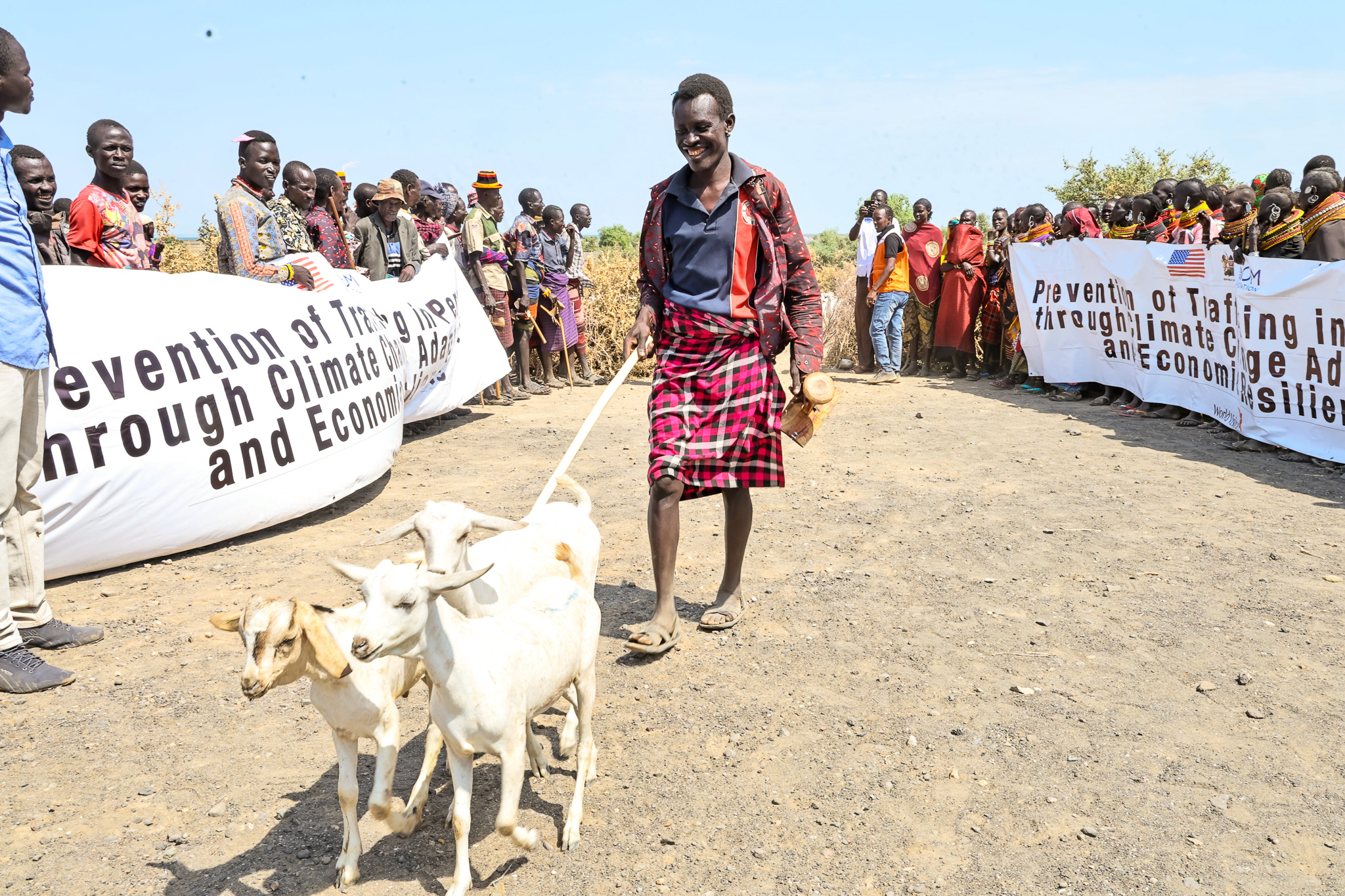
The Galla goat is a hardy breed exceptionally suited to arid environments. Its strong legs enable it to navigate rocky terrain and dense bush, while its large body, drought resistance, and ability to produce two liters of milk daily make it a valuable asset in challenging conditions. This breed can survive prolonged droughts better than most and thrives in hot, dry climates. Adult females weigh between 45 and 55 kilograms, while males range from 60 to 70 kilograms.
World Vision's Raphael Chamah believes the Galla goat can revolutionize livestock in the region. By introducing this breed, communities can improve their local herds and develop a more drought-resistant livestock population over time. Increased milk and meat production, coupled with the goat's resilience and market value, will significantly enhance the socioeconomic conditions of residents.
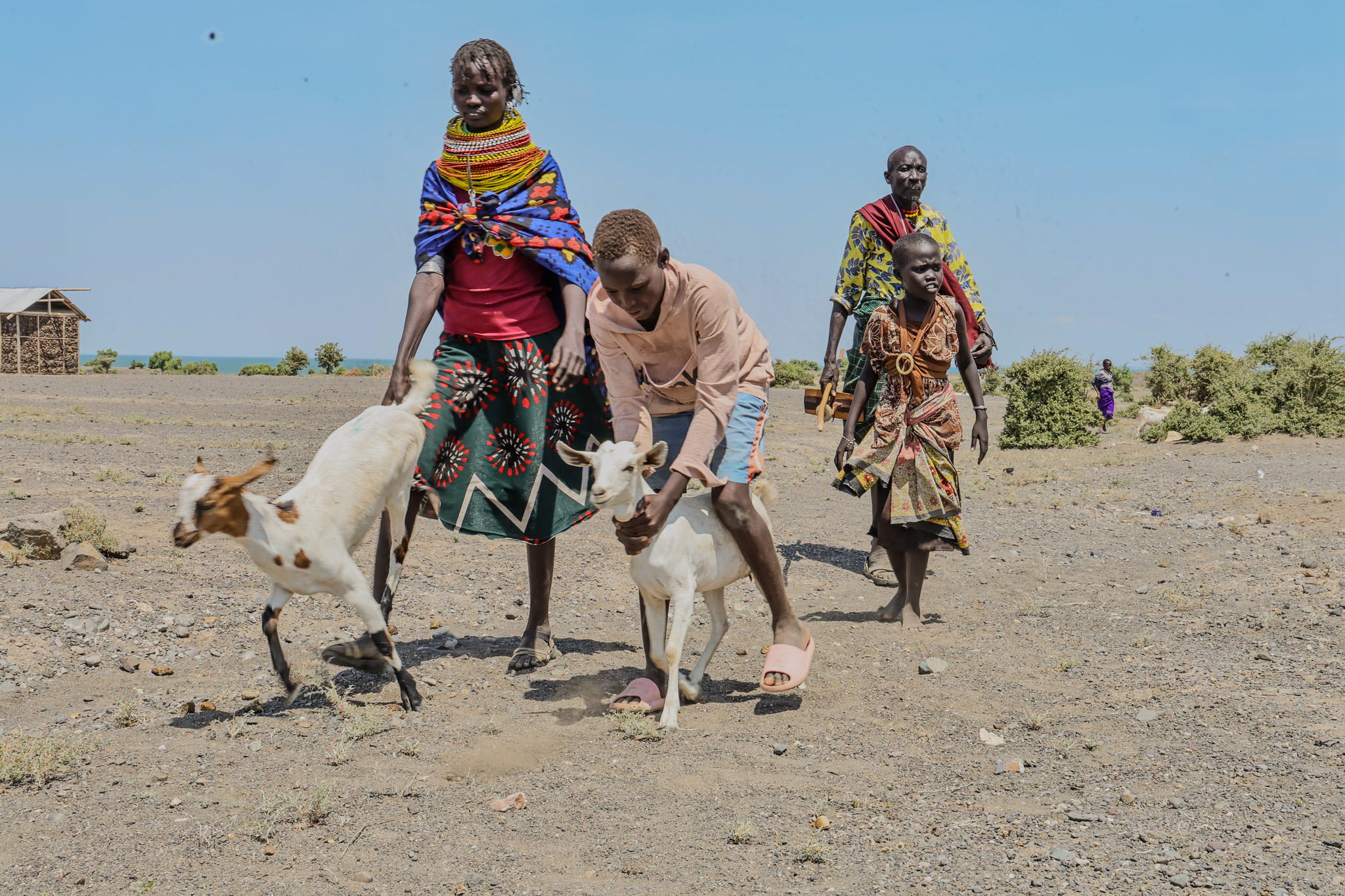
Moite Ward Member of County Assembly, Hon. Daniel Emoche, and beneficiary Mr Lobok Akal agree that providing Galla goats to vulnerable households can reduce labour trafficking by improving their economic stability, reducing the need for risky migration and the likelihood of exploitation. Young people, often the most vulnerable to exploitation, can be engaged in goat care and other productive activities within their communities.
To ensure the goats' adaptation to the Moite climate, they were vaccinated three times for deworming, according to Mr Morris Ogom, the Loiyangalani Veterinary Officer. The Galla goat's ability to conserve water, minimal body fat, and thick coat are key survival adaptations for such harsh conditions.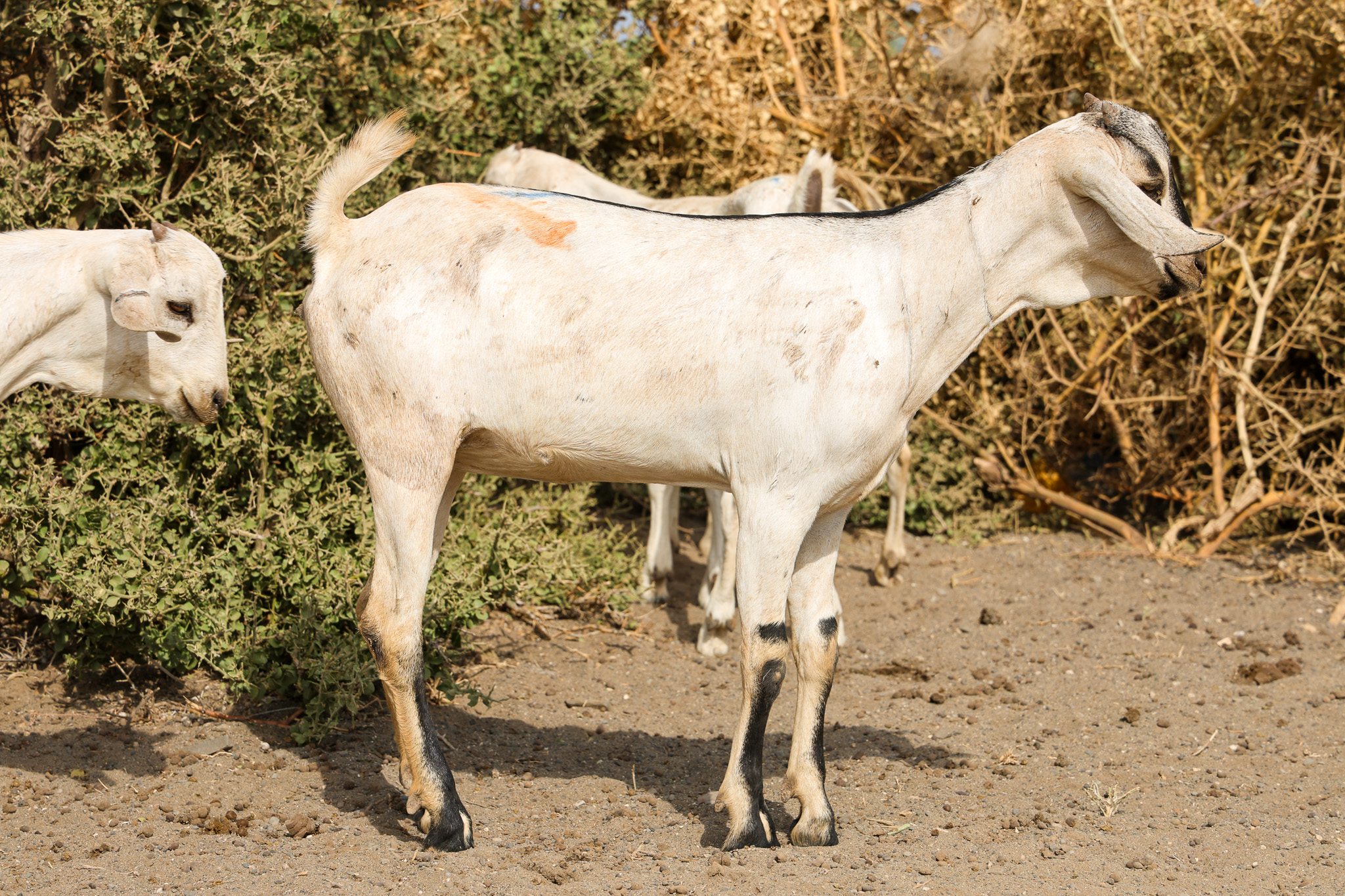
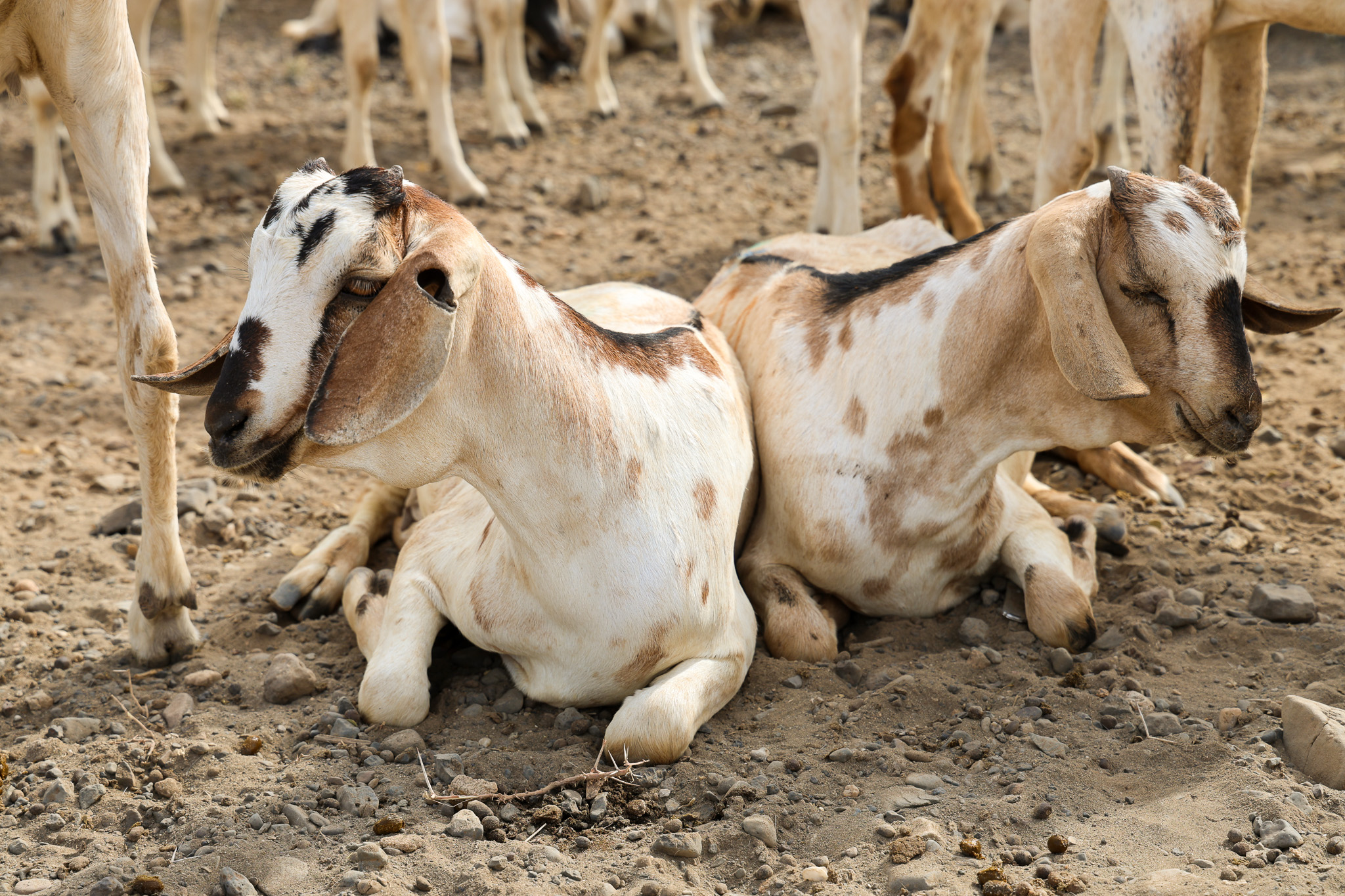
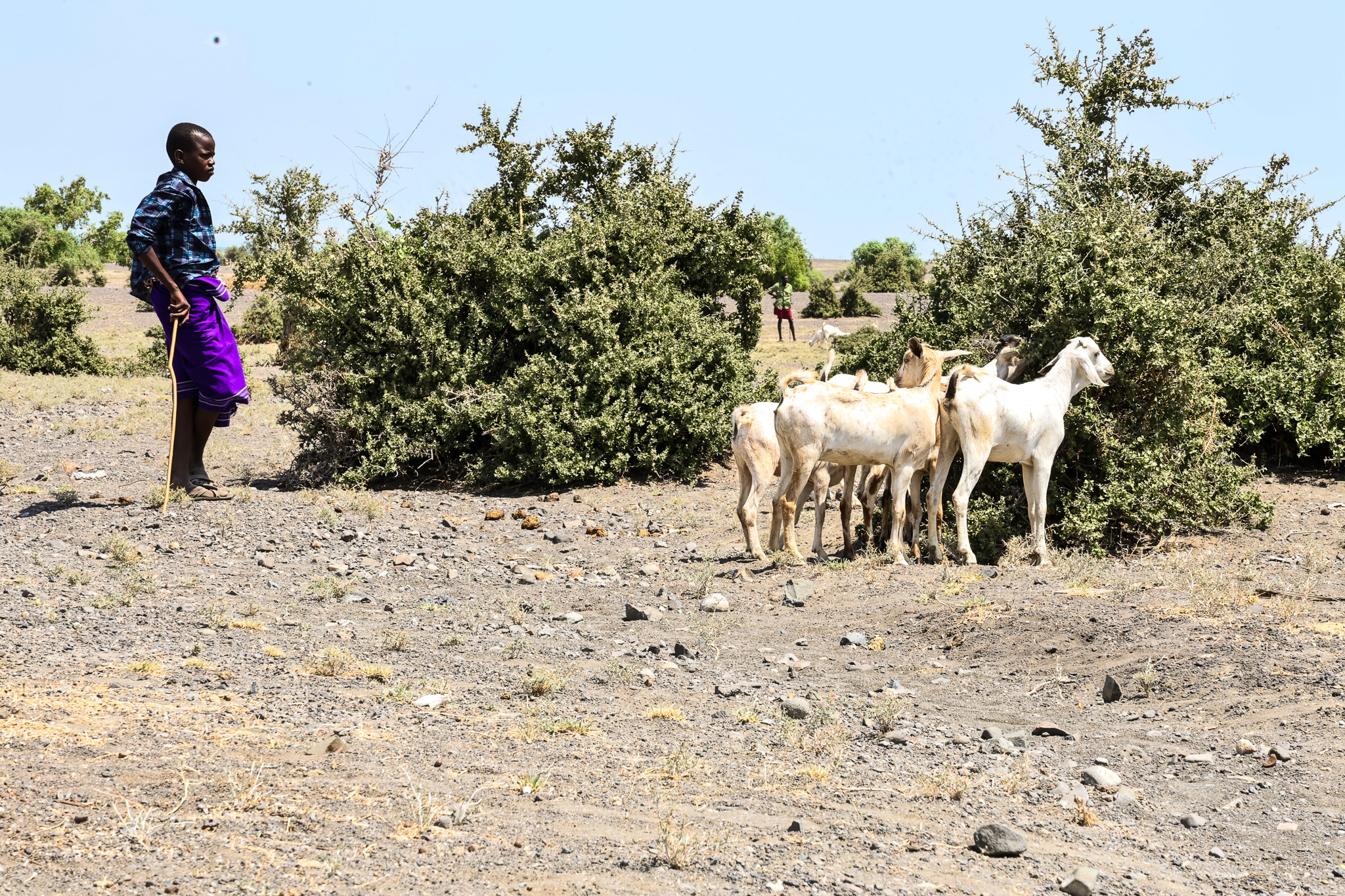
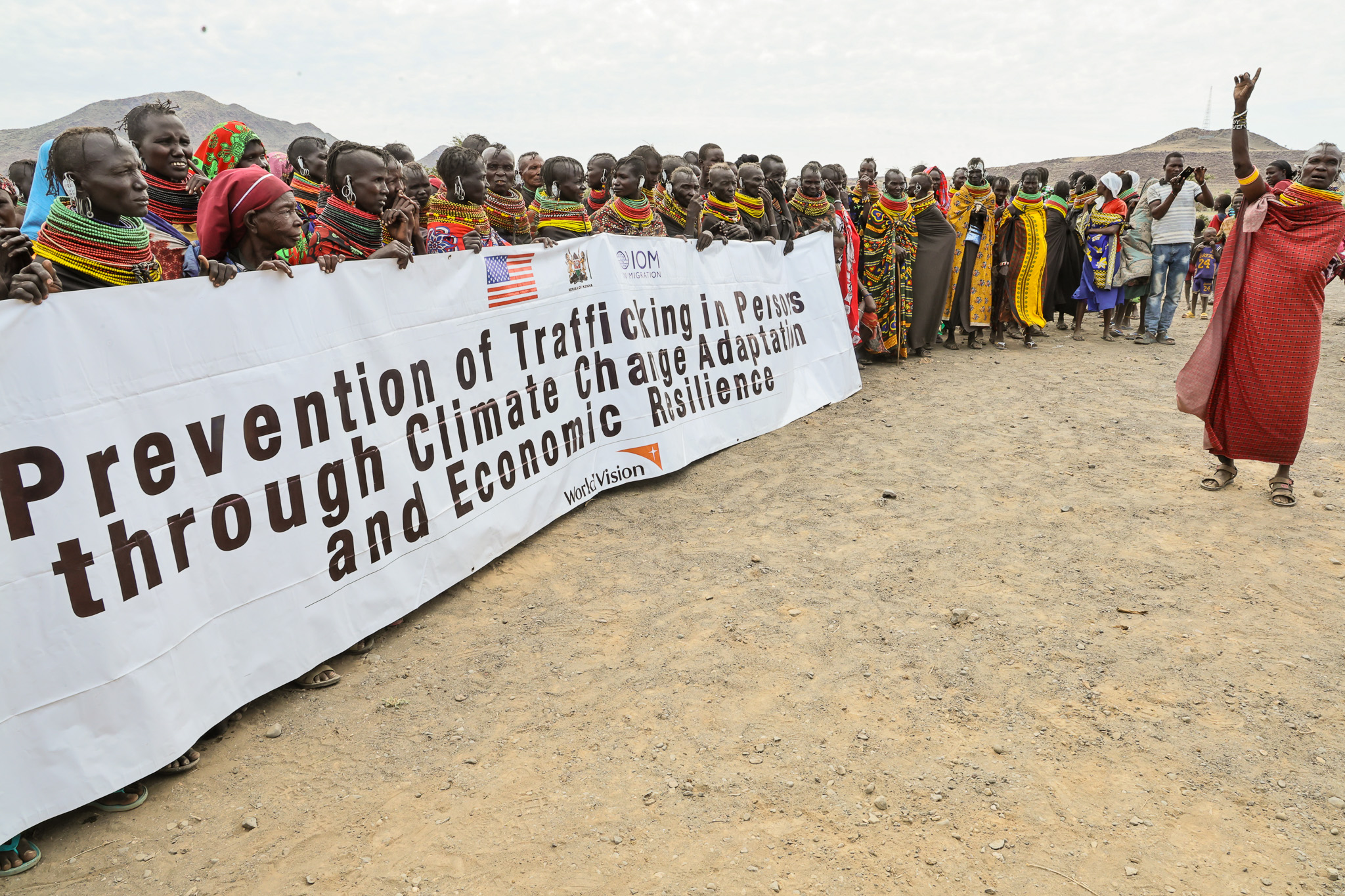
The JTiP initiative seeks to eradicate the underlying causes of human trafficking by addressing both push and pull factors. It aims to empower vulnerable communities impacted by climate change, particularly drought, through sustainable livelihoods provided by Galla goats. By reducing economic desperation, the initiative hopes to decrease the risk of exploitation and human trafficking. Furthermore, JTiP focuses on raising community awareness about the interconnectedness of climate change, environmental degradation, and human trafficking, while equipping community members to prevent trafficking.
By Jared Ontobo, Emergency Communications Specialist | World Vision Kenya